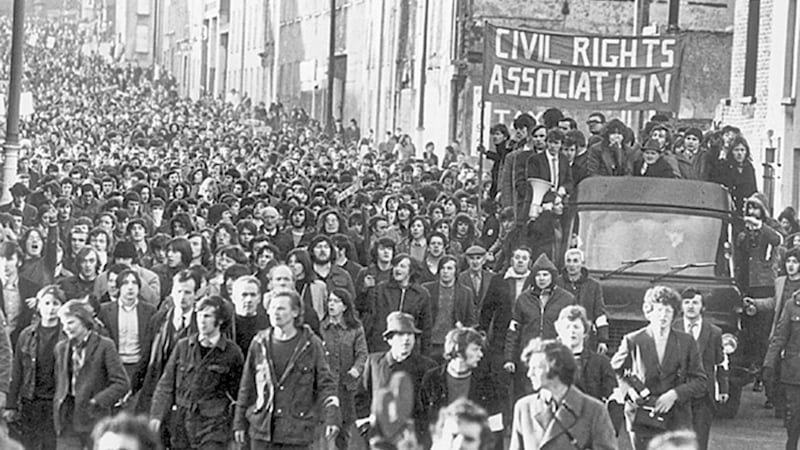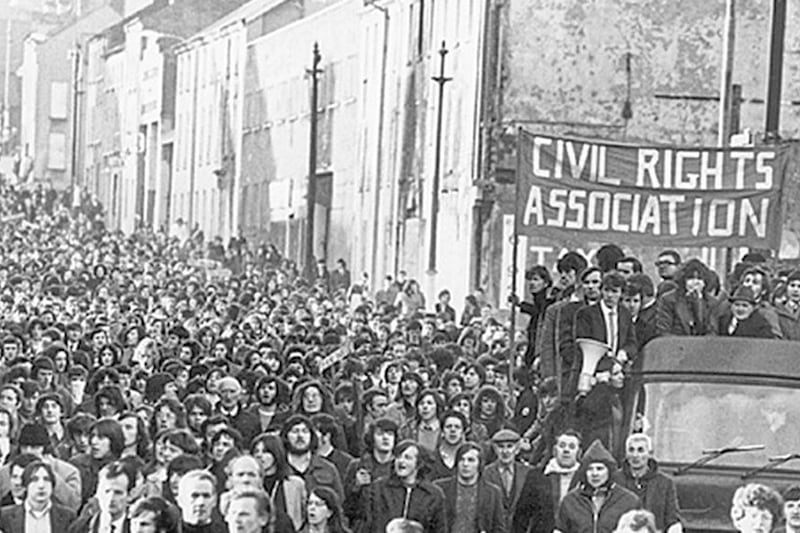IN the days following Bloody Sunday, some of us in the Northern Ireland Civil Rights Association recognised the need to document what had happened.
As we processed the eye-witness accounts of the killings, to produce the booklet, Massacre at Derry, the recurring theme in our discussions was not what took place, but why.
We had two theories. The first was that discipline had broken down in the ranks of the Parachute Regiment and the result was unintended chaos.
The alternative view, which I advocated, was that the soldiers were either obeying orders, or were told to fire at anyone they wished, as and when they wanted.
My argument was supported by the fact that the Parachute Regiment is impeccably disciplined and the soldiers would have given tea and biscuits to the marchers had they been ordered to.
But that view needed an explanation as to why Britain would deliberately massacre peaceful marchers and at that time we did not have one.
Read More
- Bloody Sunday prosecution: Who is Soldier F?
- Bloody Sunday families: 'I could cry but I'm not going to cry'
When the booklet was ready for printing, it had become clear that the British authorities intended to drive the civil rights movement off the streets.
So we wrote in the introduction that Bloody Sunday was ordered and directed by the British government, even though we had no idea what their long-term plan was.
Forty-seven years later, those two theories are still all we have in terms of explaining Bloody Sunday.
The Saville inquiry told us what happened - although we had already established that in Massacre at Derry - but it did not explain why.
This week's decision to prosecute one token soldier reveals the explanation which Britain wishes us to believe.
It suggests that Bloody Sunday resulted from a breakdown in military discipline. To placate the Tories, a single prosecution indicates that it was not a very serious breakdown.
If the paratroopers ran amok on Bloody Sunday, then it follows that they should have been prosecuted through military disciplinary procedures and, if necessary, civil law. That did not happen.
However, if the massacre was planned and ordered, then prosecuting the soldiers who fired the shots would have to be part of a much wider prosecution package.
This would encompass a hierarchy of military and political personnel, many of whom are still alive. It would also have implicated the late Edward Heath..
More significantly, it would suggest that Bloody Sunday was political in nature and intent.
Read More
- Bloody Sunday: Attorney General asked to investigate Gavin Williamson's remarks
- Public Prosecution Service spells out in detail Blood Sunday decisions
The history of the north since 1972 supports that view and provides the explanation we did not foresee 47 years ago.
From 1968 until Bloody Sunday, the northern problem was identified as one of civil rights, despite the IRA's growing paramilitary violence.
Britain had no problem with the IRA. They could depict them as terrorists and the British presence here could be portrayed as peacekeeping.
If the peaceful civil rights movement could be driven off the streets, the way would be clear for a stand-up war with the IRA, which would be much easier for London to defend across the world.
It would also justify the invasion of the no-go areas in Belfast and Derry. The IRA walked straight into the trap and embarked on their long war, for what they said was a united Ireland or nothing. In the end they got nothing.
Six months after Bloody Sunday, 30,000 British troops invaded the no-go areas and shortly afterwards the IRA killed five civilians in a series of car bombs in Belfast on Bloody Friday.
Read More
- Bloody Sunday families seek review of decisions not to prosecute soldiers
- Analysis: Disappointing for Bloody Sunday relatives but they will press on
Four others died too - two British soldiers, an RUC reservist and a member of the UDA - and 130 were injured.
Every day was now just another bloody day and the British government had the upper hand in public relations.
Although NICRA continued on for several years, its street campaign was effectively ended in the face of a long sectarian war. Britain's plan had worked.
By agreeing to prosecute a soldier who fired shots, the British government is still covering up for Bloody Sunday, by portraying him as a rogue paratrooper who disobeyed orders.
The decision to prosecute is another protracted step in Britain's long war of political haggling with the Bloody Sunday families.
This man deserves to be prosecuted, but he does not deserve to be sacrificed to cover up for his superiors in the army, the intelligence agencies and the Conservative party.
The fingerprints of politics are all over this prosecution.
This is not an attempt by Britain to see justice done. It is another major effort, following Widgery, Saville and Cameron, to bring closure to Bloody Sunday, so that those responsible for it and their real motives for murder will never be revealed.
If it does not work, Britain can always grant Derry UK City of Culture status on a second occasion.
Well, it almost worked the first time.








